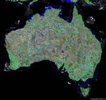Nigel Lawson, Baron Lawson of Blaby, a British Tory politician who was Chancellor of the Exchequer in Margaret Thatcher’s cabinet during the 1980s, is visiting New Zealand as a guest of the Business Roundtable to give this year’s Sir Ronald Trotter memorial lecture. Lawson withdrew from the mainstream of Conservative politics in 1992 “to spend more time with his family” (coining that phrase as he did so), but in recent years he has reinvented himself as a climate sceptic, a vociferous opponent of the Kyoto protocol and a scourge of what he terms “eco-fundamentalists”. Clearly, the Business Roundtable has brought in a wise elder statesman to provide much needed context to the climate debate, to better inform its members about the need for emissions reductions. Sadly, Lawson is far more likely to serve up a rousing speech packed with half-truths, distortions, and advice so bad it amounts to dangerous folly, if reports in the Sunday Star Times and Dominion Post are to be believed.
Tag: election
Howard’s carbon conversion
 There’s an Australian federal election on the way, and – bless his cotton socks – John Howard has discovered there are votes in carbon policy. Over the last few days Howard has announced a national cap and trade programme for greenhouse gases as part of a new A$627 million climate change initiative, coupled with subsidies for solar hot water systems in schools, and an A$1,000 rebate for domestic installations. The carbon trading mechanism will not begin until 2011, covers only 55% of Australian emissions, and the administration has not announced how big the cap will be. Unsurprisingly, this has been criticised by environmental campaigners, as New Scientist reports:
There’s an Australian federal election on the way, and – bless his cotton socks – John Howard has discovered there are votes in carbon policy. Over the last few days Howard has announced a national cap and trade programme for greenhouse gases as part of a new A$627 million climate change initiative, coupled with subsidies for solar hot water systems in schools, and an A$1,000 rebate for domestic installations. The carbon trading mechanism will not begin until 2011, covers only 55% of Australian emissions, and the administration has not announced how big the cap will be. Unsurprisingly, this has been criticised by environmental campaigners, as New Scientist reports:
Caroline Fitzpatrick, of Greenpeace Australia accuses Howard of yielding to pressure from another group – Australia’s powerful coal industry – by announcing what amounts to a delaying tactic in carbon trading, rather than an effective new carbon-reduction scheme.
No doubt NZ’s Greenhouse Policy Coalition will renew its calls for the government on this side of the Tasman to match Howard’s cautious approach. Meanwhile, the Australia Institute has released a paper (press release, full paper [both PDF]), that calculates Australia’s emissions budget for the 21st century based on a “contract and converge
